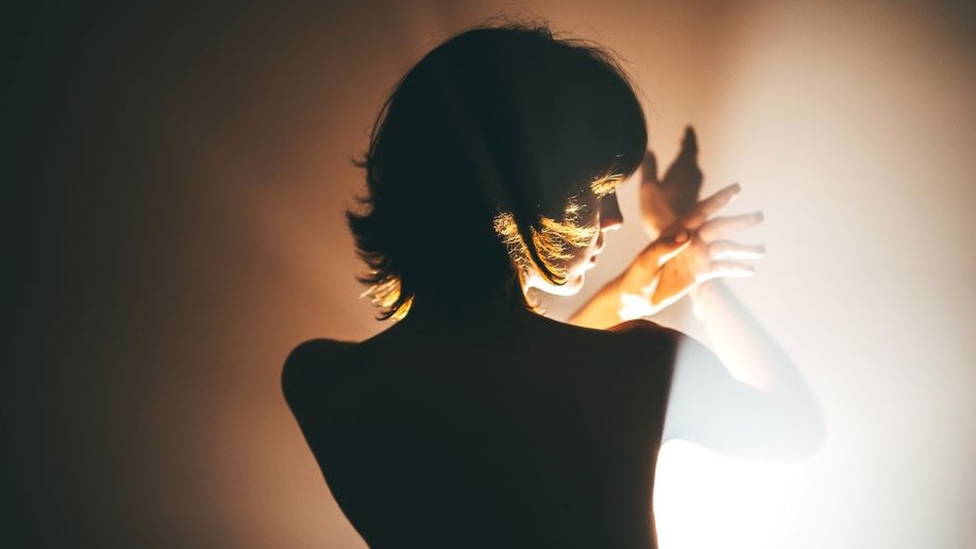Hardcore sex project should not have received arts funding - Robertson
- Published

An arts project involving "hardcore" sex performances should have "in no way" been given public funding, the culture secretary has said.
Director Leonie Rae Gasson secured more than £110,000 from Creative Scotland through the National Lottery Open Fund.
But Angus Robertson told the Scottish Parliament that the cultural development body was "rapidly" reviewing its two grants for Rein.
MSPs have called for the money to be "clawed back".
In the January round of the public arts body's National Lottery Open Fund, £84,555 was awarded to director Leonie Rae Gasson for her Rein project.
It involves using "pornographic processes" to film "non-simulated sex" in the Highlands.
Creative Scotland had already awarded her £23,219 from the same fund in August 2023.
BBC Scotland News has approached Ms Gasson for comment.
Research and development for the project included a nine-minute sexually explicit film.
Creative Scotland declined to say whether its staff viewed the short film - which aims to take audiences on a "magical, erotic journey through a distinctly Scottish landscape" - before awarding the latest grant.
The project's website describes Rein as a 45-minute art installation with audience interaction showing explicit footage on three large screens emerging from pools of water.
A recruitment advert for Rein, which was advertised on the websites of publicly-funded arts organisations, says it will pay those who take part a fee of £270 per day to take part in "non-simulated" sex, including "hardcore" acts.
It states applicants must be over the age of 18 and may have previous experience of dance or sex work - "particularly in porn contexts".
Speaking at Holyrood, Neil Bibby, Labour MSP for the West of Scotland, asked the Scottish government for its response to the Creative Scotland grant for Rein "in light of concerns about its explicit content".
He asked if the money, including the earlier grant of more than £23,000, should be "clawed back" and called for Ms Gasson's funding application to be published in full to restore trust in the funding process.
Mr Bibby also questioned the legality of the project, which was to be filmed in outdoor public spaces in the Highlands.
Culture secretary Angus Robertson said he shared the concerns raised by MSPs
Culture secretary Angus Robertson said he shared the concerns that had been raised.
"I can see no way that what has been described should be in receipt of public funding," he said.
Mr Robertson added: "Creative Scotland, I understand, are rapidly reviewing this allocation as they have been clear that what has been reported simply does not meet what the funding was applied for."
He said parliament had to await the conclusions of Creative Scotland, an arms-length organisation.
Scottish Conservative MSP Alexander Stewart said serious questions remained "over this use of taxpayers' cash".
He added: "As part of their review, Creative Scotland must urgently guarantee that this sort of award will never happen again."
'Considerably more explicit'
In a statement at the weekend Creative Scotland said: "We support freedom of expression and artists being able to push the boundaries of radical performance.
"However, the project, Rein, is considerably more explicit in its execution than was indicated in the application received to our Open Fund.
"As such, we are reviewing this award and will be discussing next steps with the applicant and with the other partners in the project."
A Creative Scotland spokeswoman told BBC Scotland News it would not be able to "share the full application as this is ongoing activity and is business confidential".
Ms Gasson, a Glasgow-based director from London, has described herself as someone who "approaches her work from a queer and neurodivergent perspective".
Ms Gasson has been working two days a month at the Royal Conservatoire Scotland (RCS) as part of a two-year pilot scheme for arts innovators, external to "support students, staff and alumni".
An RCS spokeswoman said the project will come to an end in April and the call out to recruit performers for Rein had not been sent to their students.
Development sessions for Rein were held in Glasgow by Tramway tenants The Work Room and Take Me Somewhere
Four organisations were listed as supporting partners of the project, including Take Me Somewhere.
The Creative Scotland-funded charity, based at the Tramway, provided a letter of support.
It also held nine development days for Rein over three separate weeks in 2022 and 2023.
Another partner, The Work Room, also provided a letter of support for the artists' funding application.
A spokeswoman said: "We hosted one week of choreographic development for the project last year, with a further week scheduled for later this year. The Work Room is not hosting auditions."
Rein is listed as premiering in the autumn of 2025.
The Tramway is a public arts venue funded by Creative Scotland and owned by Glasgow Life - the charity which runs Glasgow City Council's leisure facilities.
A Glasgow Life spokesman said they were not responsible for the programming organised by their tenants, Take Me Somewhere and The Work Room.
But he said it had been assured that sessions scheduled to take place in May as part of a week-long residency at The Work Room would not include any sexual activity.
The arts charity hosted a week of Rein research and development sessions in the Tramway in October.
The May event is designed to help "each cast member to realise this fantastical erotic world".
The Glasgow Life spokesman added: "No Glasgow Life venue, including Tramway, was being or will be considered as a place to present this work."